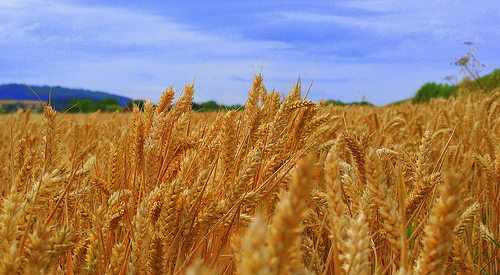

Environment
Report highlights vulnerability of global food systems
Global food systems are increasingly susceptible to acute disruption and systemic shocks could lead to food price rises, food riots and changes in stock market values.
The global food system is increasingly vulnerable to acute disruptions that have the potential to cause widespread economic, social and political implications, according to a new report by the insurance firm Lloyds.
It highlights that a combination of just three catastrophic weather events could lead to the quadrupling of Wheat, maize and soybean prices.
The report explores what could happen to the global food systems in a scenario where three likely extreme weather events – El Nino (the warming phase of the Pacific Ocean, largely associated with the potential for flooding), the spread of windblown wheat rust in Russia and warmer temperatures in South America – are combined.
This series of events, according to researchers, could lead to food riots breaking out in urban areas in the Middle East, North Africa and Latin America. It claims that in the face of the political instability this would cause, it could have knock on effects for a wide range of businesses.
Researchers also predict that this could result in a loss of 10% value for the European stock markets and a 5% loss of value for the US markets.
Director of Anglia Ruskin University’s Global Sustainability Institute Dr Aled Jones, who worked on the report, said that food security is of “increasing concern” to regulators, insurers and society more generally.
He said, “As the world moves increasingly towards a globalised system, we are able to provide more and more food to people who need it.”
“However, the connectedness of our system also means a food production shock in one part of the world can have far reaching consequences, as we saw during the Arab Spring.”
Tom Bolt, director of performance management at Lloyd’s, said, “Traditionally insurers look only at the financial and physical impact of catastrophes. But in today’s interconnected world, these events can have complex and far-reaching economic and humanitarian implications.
“The insurance industry has a key role to play in improving the resilience of communities, businesses and governments. Our role is not only to ensure that our ability to pay claims helps them to recover quickly from these events, but to ensure they have a greater awareness of the complex risks they face in a globalised world.”
Image: Lauren Tucker via Flickr
Further reading:
Food diversity vital for adapting to climate change
World needs to sustainably produce 70% more food by 2050
Grocery sector launches campaign to tackle household food waste


 Environment12 months ago
Environment12 months agoAre Polymer Banknotes: an Eco-Friendly Trend or a Groundswell?

 Features11 months ago
Features11 months agoEco-Friendly Cryptocurrencies: Sustainable Investment Choices

 Features12 months ago
Features12 months agoEco-Friendly Crypto Traders Must Find the Right Exchange

 Energy11 months ago
Energy11 months agoThe Growing Role of Solar Panels in Ireland’s Energy Future




























